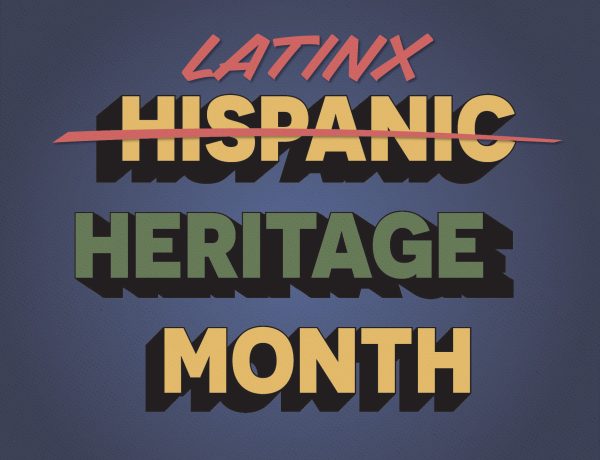From Sept. 15 to Oct. 15, National Hispanic Heritage Month celebrates Hispanic and Latin American cultures and the many contributions Latinx peoples have made to American history.
Hispanic Heritage Month’s celebration officially begins on Sept. 15, a date which signifies independence for the countries of Costa Rica, El Salvador, Guatemala, Honduras and Nicaragua, and more Latin American independence dates occur throughout this period until Oct. 15. Despite Hispanic Heritage Month’s roots in celebrating specifically Latin American cultures and independence, the term “Hispanic” implies Spanish influences and culture — the main colonizer of Latin America from which these countries gained independence.
This terminology has some critics. “‘Hispanic’ is the term that the US government has used in the census… it’s not an accurate descriptor for what is essentially “Latin American,” Zorimar Rivera Montes, assistant professor in the departments of English and Spanish & Portuguese, said.
“Latinx or Latine Heritage Month are nicer ways to refer to the [month].”

While the terminology is problematic, it is important to instead focus on the month as “a great time to educate everybody who is and isn’t Latine” about Latin American history, cultures and populations in America today.
Connecting with the New Orleans community and learning about Latinx heritage is easy, with many community organizations celebrating. From now until Oct. 15, there will be numerous Hispanic Heritage events to attend, including a live music series at The New Orleans Jazz Museum, Que Pasa Fest in Metairie on Oct. 5 and 6 and a special event at The National WWII Museum. In addition to these events, there are many Latinx-owned restaurants to visit in New Orleans and nonprofits like the New Orleans Hispanic Heritage Foundation to get involved with year-round.
Along with these events being fun and accessible, engaging with Latinx cultures and histories in New Orleans is important as the city has a long history of Latinx immigrants and Spanish influence. According to Rivera Montes, “New Orleans likes to brand itself as French,” but New Orleans’ Spanish influence is unique, and it would be a waste not to learn about and engage with its history while at Tulane. Rivera Montes emphasized the similarities in Creole culture and history between Latin America and New Orleans: “It’s very beautiful for me as a migrant from Puerto Rico to find this familiarity that has to do with this common heritage.”
In addition to similar colonial histories between here and Latin America, people of Latinx heritage have made immense contributions to New Orleans. “It was Latin American migrants and workers who rebuilt the city after Katrina,” Montes said. As a result of Latin American migration to New Orleans post-Katrina, Latinx communities in New Orleans continue to be large and vibrant parts of the city’s culture.
In addition to positive connections to Latin America, both New Orleans and Tulane also have direct ties to the United Fruit Company. The United Fruit Company and its founder, Samuel Zemurray — the former owner of Tulane’s presidential residence — are responsible for two military coups and foreign-backed regime change, changing the region’s political climate forever. To this day, Tulane benefits from Zemmuray’s fortune and legacy, as do other organizations in New Orleans. It is a dark history, but Rivera Montes said that reckoning with Tulane and New Orleans’ past starts “by having this conversation.” It is important that we all educate ourselves on this history to properly understand both the city and the school’s political history with Latin America.
As Hispanic Heritage Month wraps up on Oct. 15, it is important to engage with Latinx peoples and cultures in New Orleans by not only attending events, but by simply engaging in this necessary conversation of Tulane and New Orleans’ ties to Latin America. Moreover, by learning the history of Spanish colonialism in New Orleans, we can begin to properly center the month on what it is all about: uplifting Latinx populations and celebrating their immense contributions to modern America.



Leave a Comment